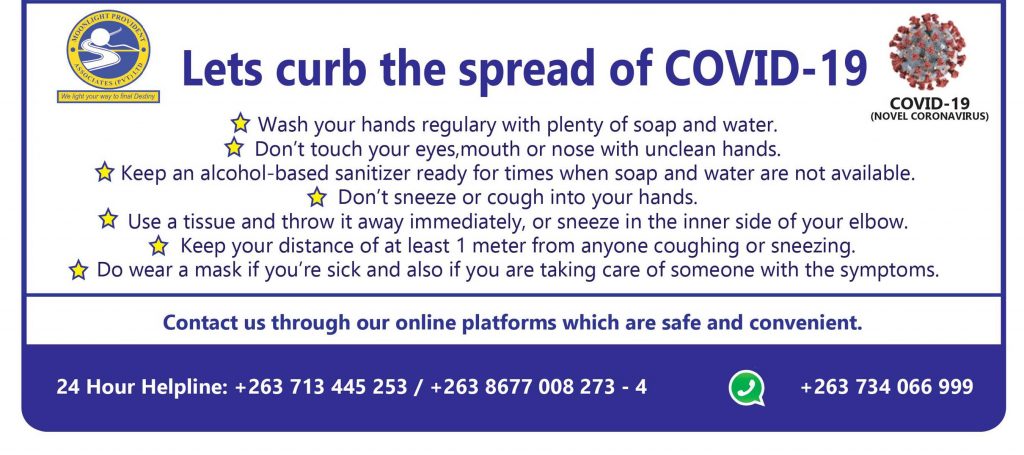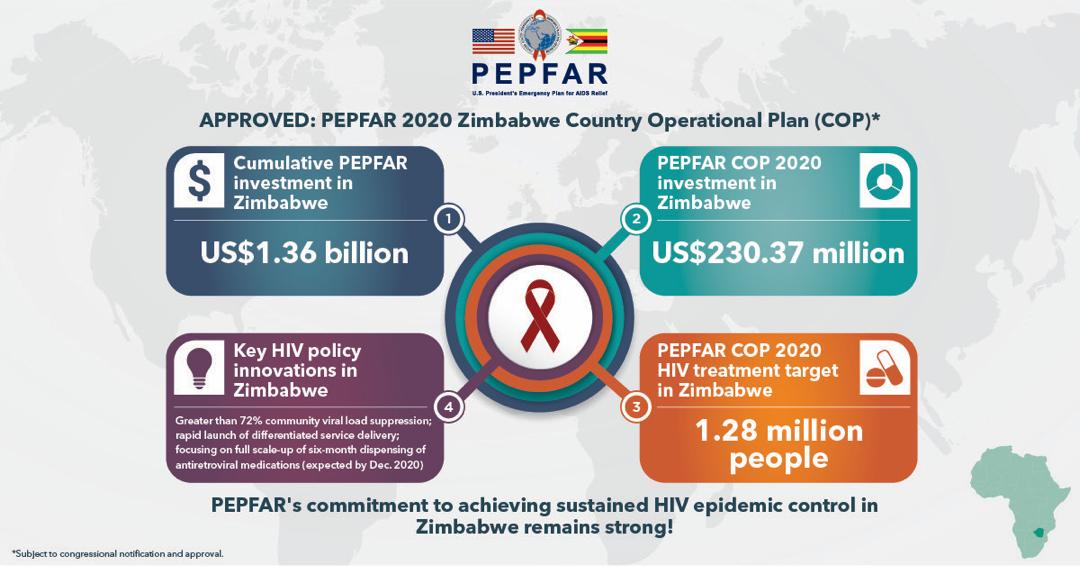The United States has approved more than $230 million to support the fight against HIV in Zimbabwe and achieve epidemic control through a comprehensive package of prevention, treatment, and support services.
Ambassador Brian A. Nichols made the announcement on April 30 following the approval of the U.S. President’s Emergency Plan for AIDS Relief (PEPFAR) Country Operational Plan for 2020 (COP 2020).
The $230,373,521 plan, which would begin on October 1, 2020, and run through September 30, 2021, is now awaiting approval by U.S. Congress.
This commitment represents a significant increase over the previous year’s budget of $163 million.
The annual plan reflects the strong coordination by United States Agency for International Development (USAID) and Centers for Disease Control and Prevention (CDC) with key partners, including Zimbabwe’s Ministry of Health and Child Care (MoHCC), the Global Fund, UNAIDS, and other multilateral health development partners. The plan aligns with the Zimbabwe National Strategic Plan (ZNASP) for 2015 – 2020 and the UNAIDS Fast Track Strategy for epidemic control.

Since 1980, the United States has provided more than $1 billion in health assistance to strengthen health systems, so that Zimbabweans can live longer, healthier lives.
Ambassador Nichols said he is especially grateful for contributions from Zimbabwean civil society organizations and people living with HIV (PLHIV) who participated in the development of the strategy.
“The collective vision and goals that guided the planning process reflect a program that is evolving to sustain HIV epidemic control,” Ambassador Nichols said. “Zimbabweans living with HIV should now have ready access to their medications, including keeping a three- to six-month supply in their homes so that they can stay on treatment.”
With 1.1 million Zimbabweans on antiretroviral therapy (ART), PEPFAR will continue to increase client access to viral load monitoring, while strengthening and expanding efforts to improve retention of clients on ART and viral suppression, particularly among children, adolescents, and pregnant women. PEPFAR also supports the establishment of an electronic health record (EHR) system which will help sustain current programs.
PEPFAR has a robust history of providing essential support, including laboratory and surveillance strengthening and human resources, to Zimbabwe’s health system.
Such programs are now providing the foundation of the COVID-19 response, and technical assistance from PEPFAR has shifted to support key roles in helping the country formulate sound public health policies and procedures to respond to the COVID-19 pandemic.
In the year ahead, the PEPFAR program targeting adolescent girls and young women called DREAMS (Determined, Resilient, Empowered, AIDS-free, Mentored and Safe) will expand from six to 16 districts.
DREAMS provides support prevention packages that include pre-exposure prophylaxis and complimentary services for orphans and vulnerable children. In addition, the PEPFAR Zimbabwe program will scale up clinical services targeting female sex workers, men who have sex with men, and transgender people.
PEPFAR will also support a community-led monitoring program through civil society to ensure high-quality, client-centered HIV services.






